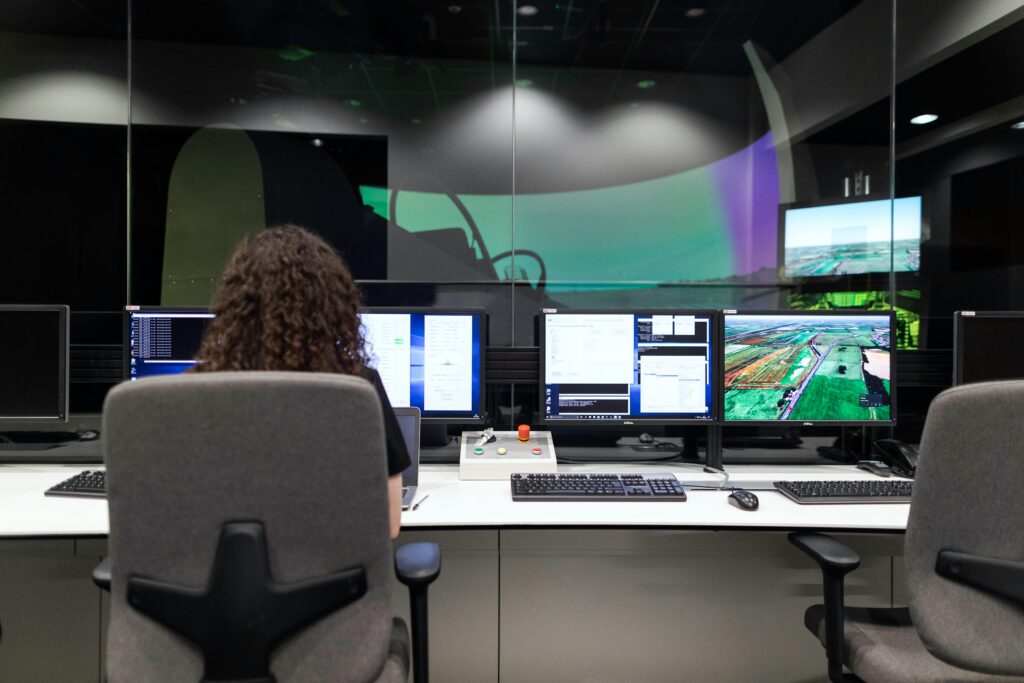Remote teams are based on trust
February 2020 was for many people, including myself, slightly turbulent due to Covid-19. From one day to another, my team of 11 people went from working mainly in the office to work entirely remotely.
In the days that followed, I talked with several leaders who were in the same situation as me, and several of them were “terrified.” As managers, they had never felt more isolated.
They revealed that they could not check in on their teammates, the same way they did it in the office. Of course, that was true but what they should have reflected on is why they feel this need for control. Are these checks really necessary?

What is a typical response from managers when going to a remote work setting?
Why do many managers feel the need to check if their people are working? I think this comes from non-qualified work when being busy automatically meant more massive output.
Since their work was non-qualified and mostly very boring, sometimes mentally harmful, the workers naturally did not feel willing to “go all-in.”
Obviously, this led to a part where the manager’s job was to check up on people and use the “whip.” This mindset partly still exists in today’s workplaces, often without the “whip” but even an urge to control and check.
When the work becomes remote, it makes sense to book early morning meetings and make sure everyone is there, and sometimes also a meeting in the late afternoon, to make sure they are still working. This “need” of checking in on people is actually contra-productive.
“It is way easier to just go under the radar when working in an office than working remotely.”
In the book “Remote: Office Not Required,” Jason Fried and David Heinemeier Hansson say: “One of the secret benefits of using remote workers is that the work itself becomes the yardstick to judge someone’s performance.”
In the office setting, you only need to attend a lot of meetings, chat nicely at the coffee machine, ask the right questions from time to time and everyone thinks you are a good worker. In the remote setting, it suddenly becomes apparent what everyone is doing or not.
How should you as a manager handle the home office situation professionally?
The simple and more obvious answer: Show trust, but we all know it is not that easy or is it? Trust is tricky; who should start? Is it the leader who should let go of the command and control to see what happens or will the employee first prove themselves trustworthy?

As I said above, it becomes more visible in a remote setting if people are working well or not and we all have to start focusing on the results, the outcomes, where you create real values. Of course, this type of mindset requires leaders to frame the work better and instead of measuring output, start measuring the outcome. Rather than telling people how they should work, tell them what result you want to achieve.
This can become a challenge for many leaders, mainly if they go through the ranks in the hierarchy by being the “best” and suddenly they are not needed as an expert.
Gartner’s tips on responding to the lack of visibility into employees’ activities recommend managers double down on trust and fight back those urges to micro-manage.
Leaders need to transform from being tech-oriented to becoming people-oriented. To stop competing with the direct reports about being the smartest and instead of helping them grow. Such changes will let the coworkers let go of their ego more efficiently and become more transparent, making the leaders feel more relaxed. Instead of checking up on teammates if they are doing their job, a leader’s job is to identify if they feel good.
5 tips in becoming a better remote leader by building trust

Be confident. Have confidence in the team and yourself and people will trust you in return.
Be supportive. It is even more important to show support and encourage people when they make mistakes or have misunderstandings while working remotely.
Be appreciative. If you openly give credit to people when they do excellent work, people will start to follow your lead and do the same with each other. It can be especially important when working remotely.
Lead from within. You must understand the importance of trust and take it seriously. Make it your daily habit to make sure you are trustworthy, and the team will follow you.
Conclusion
Successful leadership depends on trust as you are continually placing your confidence in others. Trust is given and not earned.
This is a guest post by Mikael Grönlund for nearshorefriends.
Mikael has great experience in working agile, both as a Scrum Master and as a Scrum Product Owner. Since 2012, Mikael has stopped coding professionally and now is focused entirely on coaching organizations, teams, and individuals. Since 2017 he has been working as a full-time Agile Coach. He specializes in Scrum and Scaling Agile.


